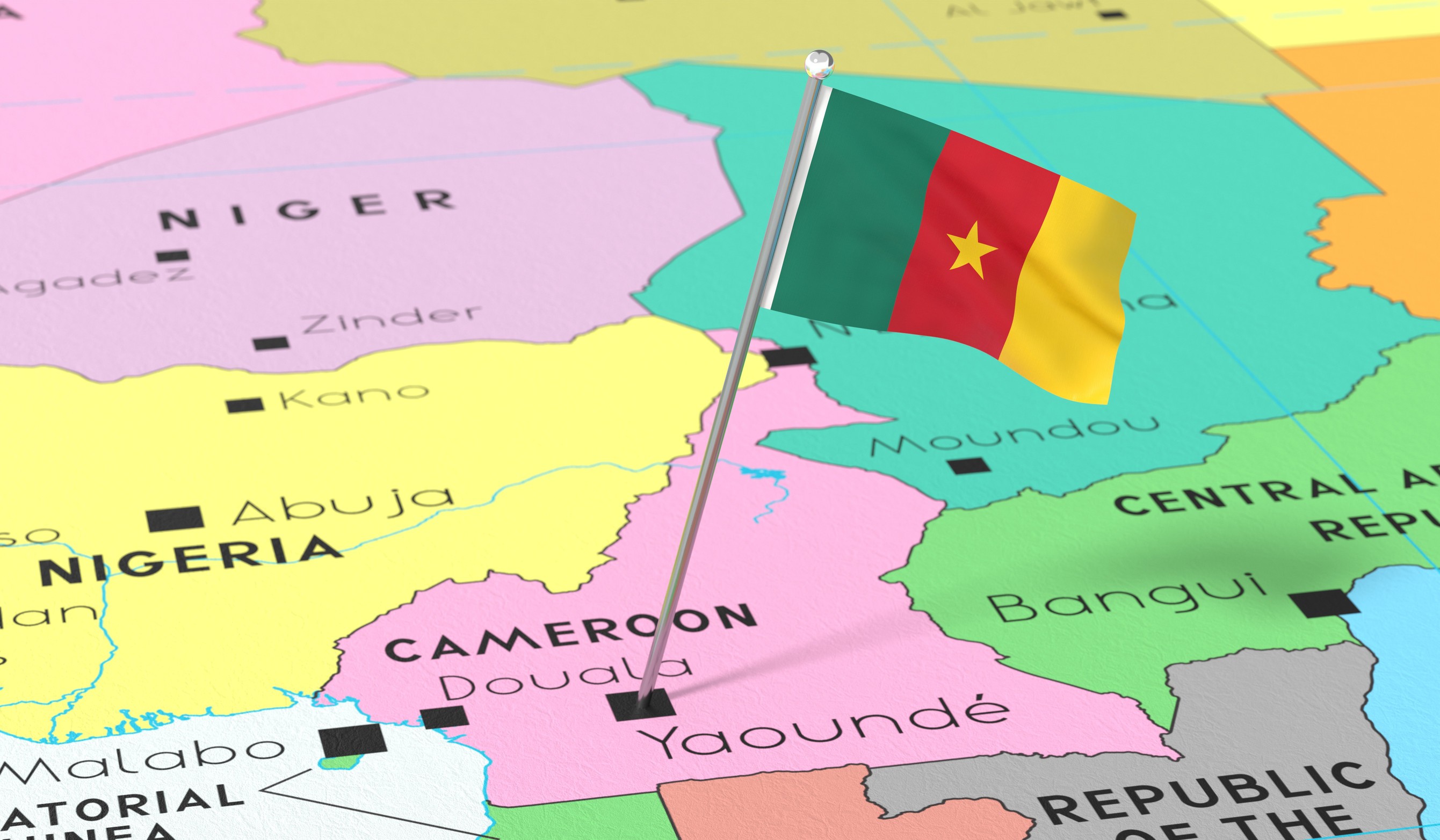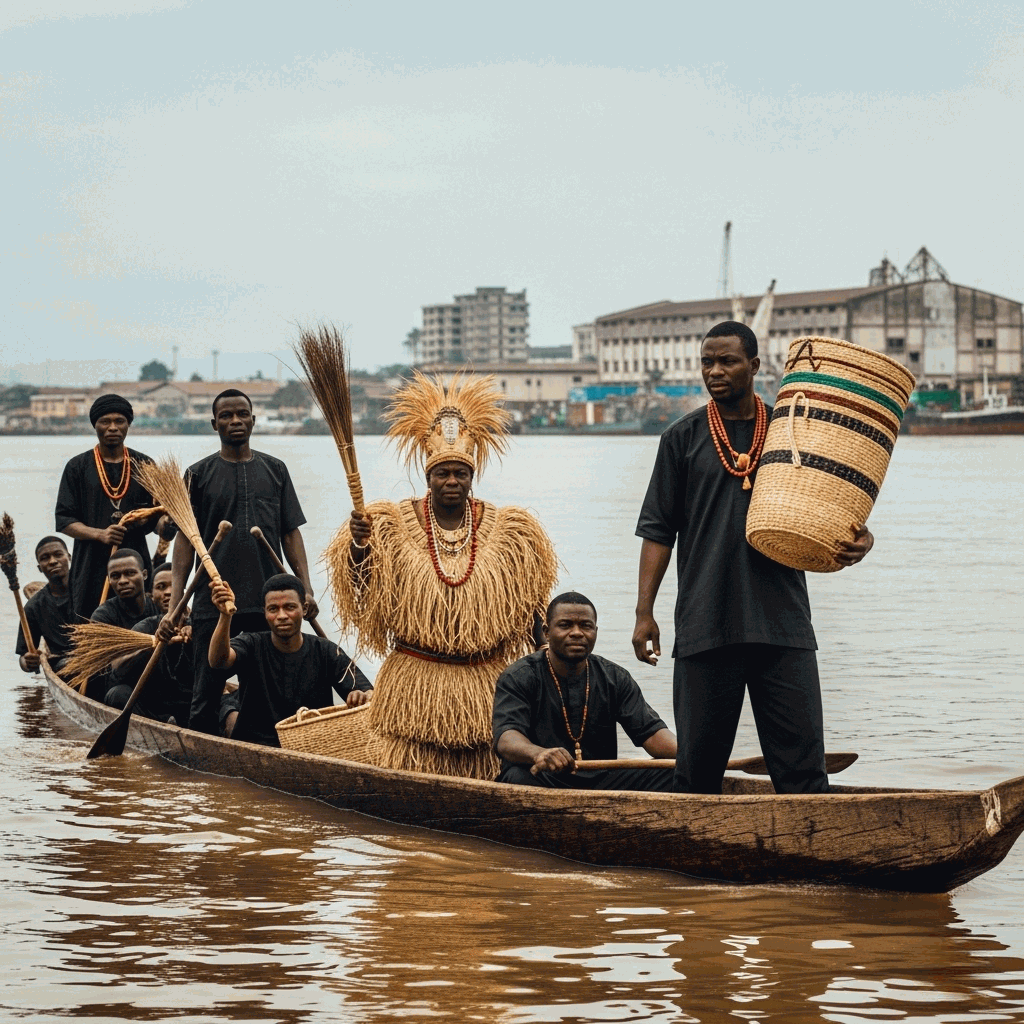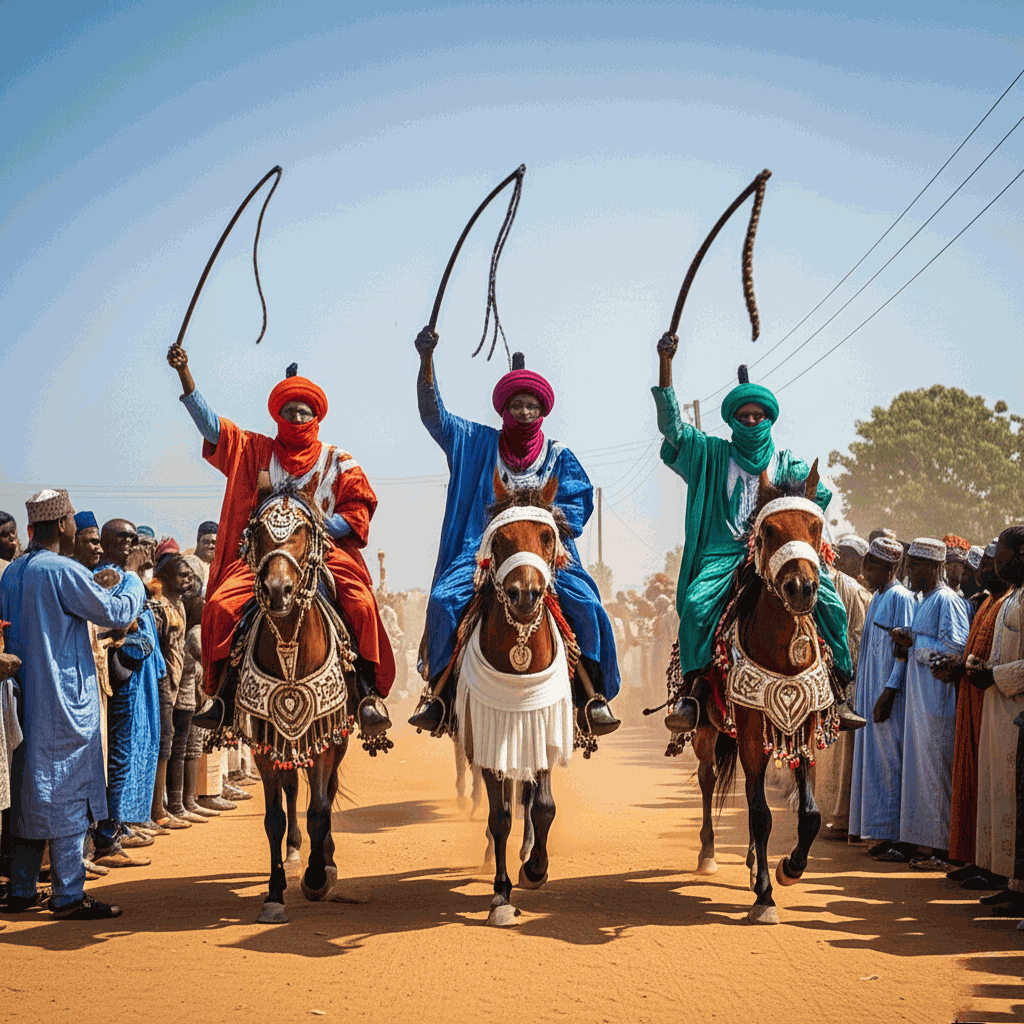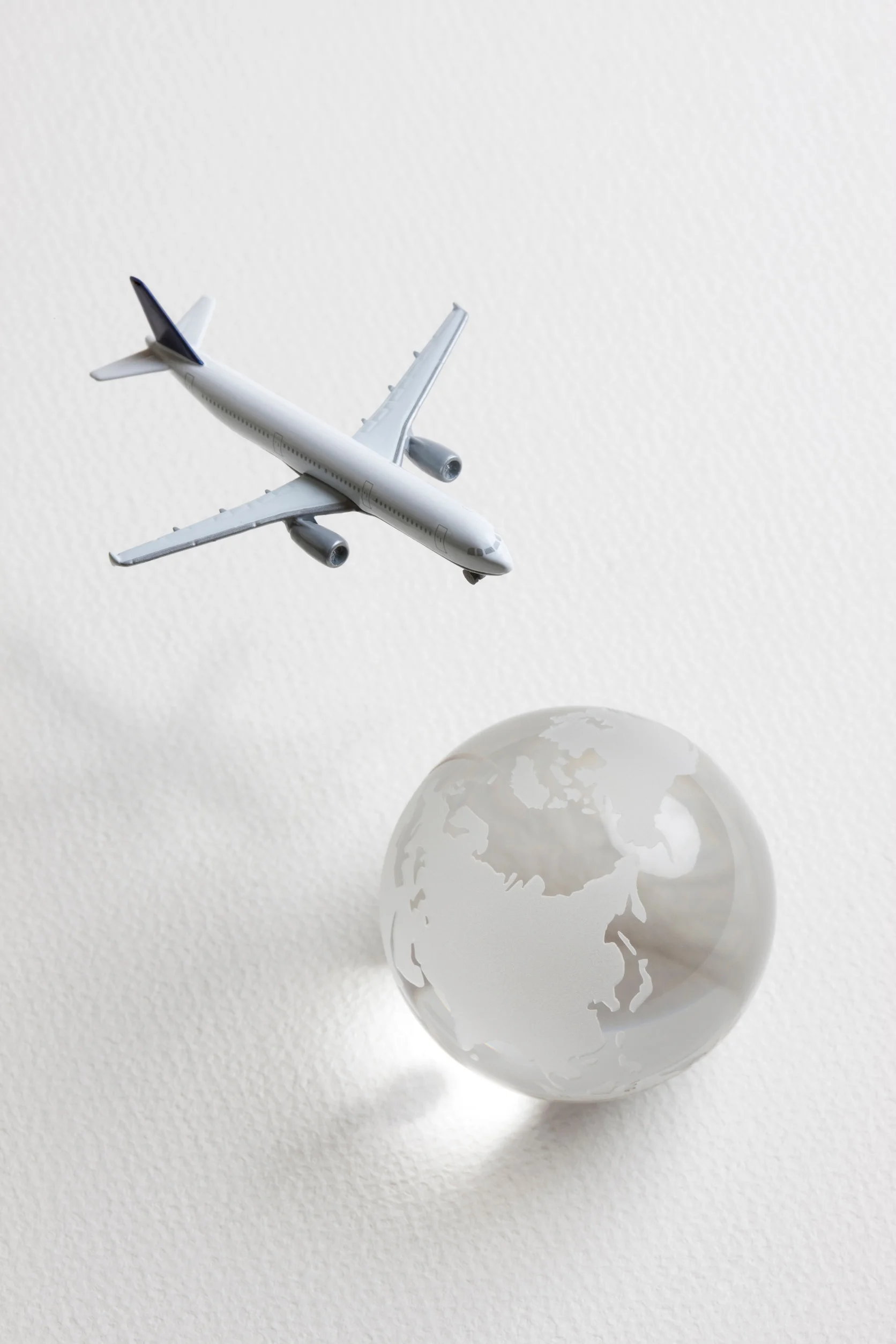Top 11 Cultural Festivals in Cameroon Travelers Shouldn’t Miss

Cameroon, is a country of extraordinary cultural richness and diversity. With over 250 ethnic groups and languages, its calendar is filled with vibrant festivals that reflect a blend of traditional heritage, spiritual beliefs, and community celebrations. From rhythmic dances and colorful costumes to sacred rituals and royal ceremonies, these events offer travelers a unique and immersive window into the heart of Cameroonian life. Whether you're exploring bustling cities or remote villages, attending a cultural festival is one of the most rewarding ways to connect with the soul of the country. Here are some of the most unforgettable cultural festivals in Cameroon that every traveler should try to experience.
Here are some of the most compelling cultural festivals in Cameroon that you shouldn't miss:
1. Ngondo Festival (Douala)

Held annually in December, usually along the banks of the Wouri River in Douala, the Ngondo Festival is a profoundly sacred event for the Sawa people, the coastal communities of Cameroon. It's a powerful tribute to their ancestral spirits and maritime heritage.
- A sacred festival of the Sawa people, held along the Wouri River. This central location emphasizes the Sawa's connection to the water, which is considered a sacred conduit to the spiritual realm.
- Celebrates ancestral spirits through traditional rituals, boat races, and dance. The highlight often involves a chosen dignitary descending into the river to communicate with the Mami Wata (water spirits), seeking blessings and guidance. Spectacular traditional boat races, often featuring elaborately carved canoes, are a thrilling spectacle, alongside mesmerizing dances and traditional music.
2. Nguon Festival (Bamoum Kingdom, Foumban)
The Nguon Festival is a rare and magnificent biennial celebration of the Bamoum culture and monarchy, rooted deep in the history of the Bamoum Kingdom in Foumban, Western Cameroon.
- A royal biennial celebration of Bamoum culture and monarchy. This festival is a cornerstone of Bamoum identity, showcasing the enduring power and unique traditions of one of Cameroon's most historically significant kingdoms. It's typically held every two years, drawing thousands from across the region and beyond.
- Involves a symbolic “transfer of power” where the people question the Sultan. A central ritual sees the Sultan symbolically abdicating his throne, only to be "re-elected" after public grievances are aired and addressed. This unique practice symbolizes the accountability of the monarchy to its people, accompanied by elaborate parades, traditional attire, and a palpable sense of historical continuity.
3. FESTAC (Festival of Arts and Culture)
FESTAC is a grand national event that serves as a powerful symbol of Cameroon's unity and the richness of its diverse cultural heritage. While not held on a fixed annual schedule, it's a significant occurrence when it does take place.
A national celebration held in various cities, showcasing music, dance, crafts, and fashion from all ten regions. This inclusive festival brings together traditions from every corner of Cameroon, from the vibrant masks of the Grassfields to the intricate textiles of the Far North, the rhythmic drumming of the Centre, and the melodic sounds of the coast.
Promotes national unity and Cameroon’s cultural diversity. FESTAC is a platform for cultural exchange and appreciation, fostering a sense of shared identity among Cameroonians while celebrating the unique contributions of each region. It often features exhibitions, live performances, workshops, and culinary showcases.
4. Nyem-Nyem Festival (Adamawa Region)

The Nyem-Nyem Festival, primarily celebrated in the Tibati area of the Adamawa Region, is a powerful historical commemoration of resistance and resilience.
- Celebrates the resistance of the Nyem-Nyem people against German colonization. This festival honors the bravery of the Nyem-Nyem warriors who fought against colonial forces in the early 20th century, particularly their victory at the Battle of the Pangar River.
- Features war dances, oral history, and traditional attire. The festival is characterized by re-enactments, energetic war dances, storytelling that passes down ancestral knowledge, and the display of traditional military attire and weaponry, all serving to keep the memory of their struggle alive.
5. Le Ngouon Festival (Western Cameroon)
Le Ngouon, often associated with the Bamileke ethnic group in Western and parts of Northwest Cameroon, is a deeply significant cultural celebration rooted in the region’s traditional chieftaincy systems. Though sometimes confused with the Bamoum’s Nguon Festival, Le Ngouon more broadly encompasses royal ceremonies that honor ancestral spirits, chiefs, and seasonal transitions. The Bamileke people, known for their complex social structures and rich artistic heritage, use these festivals to reinforce communal bonds and cultural identity. The festivities feature vibrant masked dances, energetic drumming, and stunning traditional attire decorated with beads, cowrie shells, and elaborate embroidery. Central to these ceremonies are initiation rites and symbolic rituals that preserve social order and pass cultural values from one generation to the next.
6. Mount Cameroon Race of Hope (Buea)
More than just an athletic competition, the Mount Cameroon Race of Hope in Buea, Southwest Region, is a cultural phenomenon that blends sporting prowess with deep-rooted traditions. It's an annual event, usually held in February.
A cultural-sporting hybrid where runners from around the world race to the summit of Mount Cameroon. Known as "The Chariot of the Gods," Mount Cameroon is West Africa's highest peak, and the race attracts both professional athletes and amateur enthusiasts who brave the challenging ascent and descent.
Accompanied by traditional dances and community celebrations. The event is steeped in local culture, with traditional healers blessing the runners and local communities performing lively dances and music to cheer them on. The entire town of Buea transforms into a festive hub, celebrating human endurance and cultural pride.
7. Mbog Liaa Festival (Kribi and Southern Region)
The Mbog Liaa Festival is a significant traditional celebration of the Bassa people, primarily found in the Littoral and Southern regions of Cameroon, particularly around Kribi.
- A traditional Bassa celebration of initiation, harvest, and identity. This festival is vital for transmitting Bassa heritage to younger generations. It marks important life stages, celebrates successful harvests, and reinforces communal bonds and cultural identity.
- Involves storytelling, music, and symbolic body art. Mbog Liaa features rich oral traditions, where elders recount myths and historical narratives. Traditional music and dances, often accompanied by intricate symbolic body paintings, are central to the rituals, creating a visually and acoustically rich experience.
8. Ngumba Society Celebrations (Bakossi/Banyang People)
The Ngumba Society represents a fascinating aspect of the cultural landscape among the Bakossi and Banyang peoples of the Southwest Region, known for their deep spiritual connections to the forest.
- Secretive but publicly celebrated with masked dances and ritual songs. While aspects of the Ngumba Society are secretive, its public celebrations are spectacular, featuring elaborate masked dancers who embody ancestral spirits and spiritual entities. These dances are accompanied by rhythmic drumming and ancient ritual songs.
- Reveals the spiritual depth of forest communities. These celebrations offer a glimpse into the complex spiritual beliefs and social structures of these forest-dwelling communities, showcasing their reverence for nature and their ancestors.
9. Lambe-Lambe Festival (Cameroon Grassfields)
The Lambe-Lambe Festival, a unique celebration rooted in the rich oral traditions of the Cameroon Grassfields (Western and Northwest Regions), focuses on the art of puppetry.
- A puppetry and performing arts festival inspired by local folktales. This festival brings to life the vibrant narratives, moral lessons, and humor embedded in the folktales of the Grassfields people through intricate and often humorous puppet performances.
- Highlights oral tradition, creativity, and children’s cultural education. Lambe-Lambe is not only entertainment but also a crucial method of cultural transmission, engaging children and adults alike in the stories and wisdom of their heritage, fostering creativity and preserving traditional storytelling forms.
10. Sahel Cultural Festival (Far North Region)
The Sahel Cultural Festival, held in Cameroon’s Far North Region, is a vibrant celebration of the area's rich nomadic and semi-nomadic heritage. It brings together the cultural expressions of the Fulani, Kotoko, and Arab Choa peoples—three prominent ethnic groups in the Sahelian belt. These communities, known for their equestrian traditions and distinct art forms, use the festival to showcase their history, identity, and social values. Highlights include spectacular camel parades, exhilarating traditional horse races where skilled riders demonstrate their agility and command, and mesmerizing performances of nomadic music and dance. Set against the dramatic backdrop of the Sahel, the festival offers a unique glimpse into a way of life shaped by mobility, resilience, and deep-rooted tradition.
11. New Yam Festival (Manyu and North West Regions)
The New Yam Festival is a widespread and significant celebration across many agrarian communities in Africa, particularly prominent in the Manyu Division (Southwest Region) and parts of the North West Region of Cameroon.
- Celebrates the harvest and thanksgiving in agrarian communities. This annual festival marks the end of the old harvest season and the beginning of the new, symbolizing abundance, fertility, and renewal. It is a time for communities to express gratitude for a bountiful yield.
- Includes feasting, drumming, and ancestral blessings. The core of the festival revolves around the ceremonial eating of the freshly harvested yam, often accompanied by elaborate feasts, joyous drumming, traditional dances, and rituals performed to seek blessings from ancestors for future prosperity.
Cameroon Cultural Festival Calendar
Here’s a visual calendar of major Cultural Festivals of Cameroon travelers shouldn’t miss, organized by month to help plan your visit:
|
Month |
Festival Name |
Location |
Highlights |
|
January |
Sahel Cultural Festival |
Far North Region |
Camel parades, Fulani music, horse races |
|
February |
Mount Cameroon Race of Hope |
Buea (Southwest) |
Mountain marathon, cultural dances, local crafts |
|
March |
(Open for local/rotating events) |
Various regions |
Market fairs, mini-cultural events |
|
April |
New Yam Festival (start) |
Manyu & NW Regions |
Yam harvest, drumming, ancestral worship |
|
May |
Nyem-Nyem Festival |
Ngaoundéré (Adamawa) |
Resistance celebration, war dances |
|
June |
(Local community events) |
Varies |
Storytelling, traditional games |
|
July |
Mbog Liaa Festival |
Kribi / Southern Region |
Bassa rites, body art, dances |
|
August |
Ngumba Society Celebrations |
Southwest/Forest regions |
Masked dances, rituals, sacred ceremonies |
|
September |
(Cultural Education/Workshops) |
Urban centers |
Heritage talks, museum activities |
|
October |
Lambe-Lambe Puppetry Festival |
Grassfields (NW/West) |
Puppet shows, folklore dramatizations |
|
November |
Ngondo Festival |
Douala (Littoral) |
River rituals, boat races, Sawa traditions |
|
December |
Nguon Festival(biennial) |
Foumban (West Region) |
Royal ceremony, public debates, parades |
|
FESTAC Cameroon(varies) |
Rotates across regions |
National culture week, crafts, music, cuisine |
Visiting Cameroon during one of these festivals offers an unparalleled opportunity to delve into the country's vibrant cultural heart. Each celebration provides a unique insight into the traditions, beliefs, and artistic expressions that define the diverse peoples of this extraordinary nation. Plan your trip to coincide with one of these events for an truly unforgettable experience.
Cultural Tips for Tourists in Cameroon
Cameroon is full of rich cultures and traditions, with many different languages and customs. Knowing a few cultural tips can help tourists show respect and enjoy a more welcoming experience.
- Always greet people politely: Saying "hello" or "good morning" shows respect. Use “Bonjour” in French-speaking areas and “Hello” or “Good morning” in English-speaking regions.
- Dress modestly, especially in villages: Wearing respectful clothing helps you fit in and avoid offending local customs.
- Ask before taking photos: Always get permission before taking pictures of people, especially during ceremonies or in rural areas.
- Don’t point with your finger: Pointing directly at people can be seen as rude. Use your whole hand or nod instead.
- Use your right hand when giving or receiving: The right hand is considered polite for handshakes, gifts, and eating.
- Respect elders and traditional leaders: Older people and chiefs are highly respected. Greet them first and speak politely.
- Be patient with time and schedules: Things may not always start on time. Relax and enjoy the slower pace.
- Learn a few local words: Knowing simple words like “thank you” or “please” in French or a local language is appreciated.
- Respect local beliefs and traditions: Cameroon has many cultural and religious practices. Be open-minded and avoid making jokes or comments about them.
Disclaimer: While this information was last updated in January 2026, we strongly suggest confirming all travel details with the appropriate governmental agencies, embassies, and airlines.
Applying for a Cameroon eVisa
- Step 1: Complete the online application form with your personal details and passport information.
- Step 2: Proceed to securely pay online using your credit card.
- Step 3: Check your email for payment confirmation and receipt of your Cameroon eVisa, which will be sent electronically.



